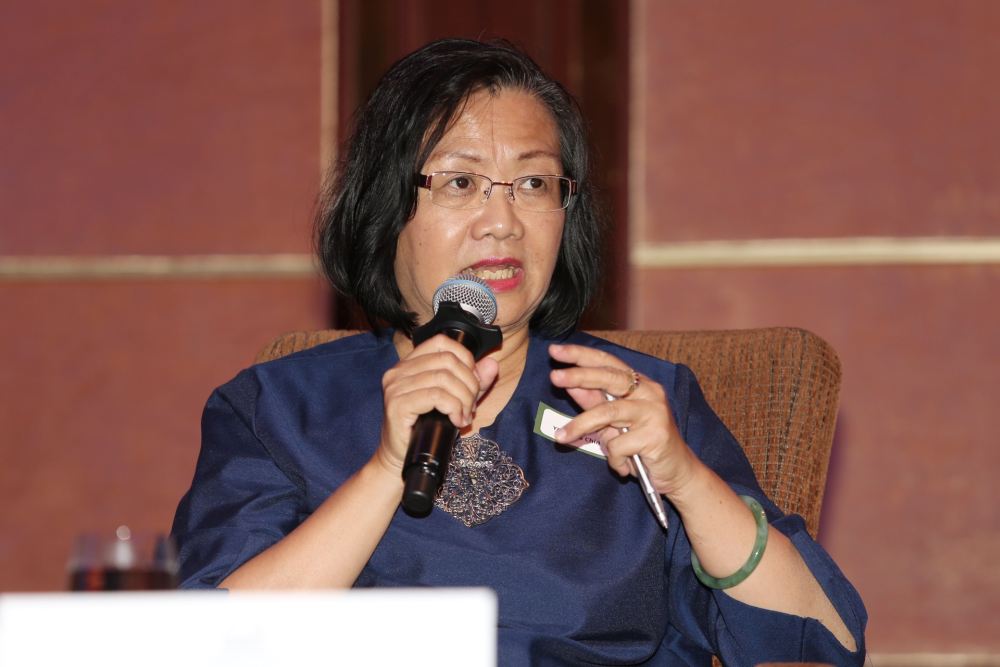PUTRAJAYA, Jan 8 — The travel ban imposed on former Bersih 2.0 chairman, Maria Chin Abdullah in May 2016 on grounds that she had allegedly disparage the government, was unlawful, the Federal Court ruled today.
Chief Justice Tun Tengku Maimun Tuan Mat who chaired a seven-member bench said there was no positive provision of law which set out clearly and unequivocally that the Immigration director-general and the home minister had the right to impose the travel ban on Maria.
“The right to travel abroad is a fundamental right guaranteed to all persons under Article 5 (1) of the Federal Constitution. It is obvious from the facts that the appellant’s (Maria) right had been breached,” she said in her judgment.
On the Immigration’s reliance on an internal circular to impose the ban on Maria, Justice Tengku Maimun said the ban could not be valid if all the respondents (Immigration director-general and home minister) had was the circular which certainly had no such authority.
“I have perused the circular and I cannot find anything in the document suggesting, even remotely, that the respondents have the power to blacklist persons holding a valid passport apart from the specific factual situation in which they lose their passport,” she said.
The bench which also comprised Court of Appeal president Tan Sri Rohana Yusuf and Federal Court judges Datuk Nallini Pathmanathan, Datuk Abdul Rahman Sebli, Datuk Hasnah Mohammed Hashim, Datuk Mary Lim Thiam Suan and Datuk Harmindar Singh Dhaliwal, in a unanimous decision, allowed Maria’s appeal on the first legal question.
The judges answered in the negative on the first question of whether Section 3 (2) of the Immigration Act empowers the director-general the unfettered discretion to impose a travel ban. Whether the director-general can impose a travel ban for reasons that impinge on the democratic rights of citizens such as criticising the government.
However, in a 4-3 majority, the court decided in favour of the respondents that Section 59 and Section 59A of the Immigration Act are valid and constitutional.
Section 59 excludes the person’s right to be heard before a decision is made by the Immigration director-general or home minister, while Section 59A states that there shall be no judicial review in any court of any decision made by the minister or the director-general except in regard to any question relating to compliance with any procedural requirement.
Justice Abdul Rahman, in the majority decision, said Section 59A had expressed with irresistible clearness the intention of Parliament to exclude judicial review on the decision of the home minister, the Immigration director-general and the Sabah and Sarawak state authorities.
The other judges who concurred with the majority decision were Justices Rohana, Hasnah and Lim while the minority decision was of Justices Tengku Maimun, Nallini and Harmindar Singh, who were of the opinion that the laws (Sections 59 and 59A) are unconstitutional and ought to be struck down.
Maria, 64, who is the Petaling Jaya Member of Parliament, was barred from travelling to South Korea on May 15, 2016, to receive an award for Bersih 2.0. However, the travel ban was lifted two days later.
She then filed for a judicial review to challenge the Immigration director-general’s decision to bar her from travelling.
She lost her case in the High Court and Court of Appeal. She subsequently obtained leave to appeal from the Federal Court in 2019.
The Federal Court bench heard her appeal in August last year and had reserved the decision.
Lawyers Datuk Gurdial Singh Nijar, Lim Wei Jiet, Abraham Au Tian Hui and Joshua Andran appeared for Maria while senior federal counsel, Shamsul Bolhassan, Liew Horng Bin and Mohd Sabri Othman represented the respondents. — Bernama



















